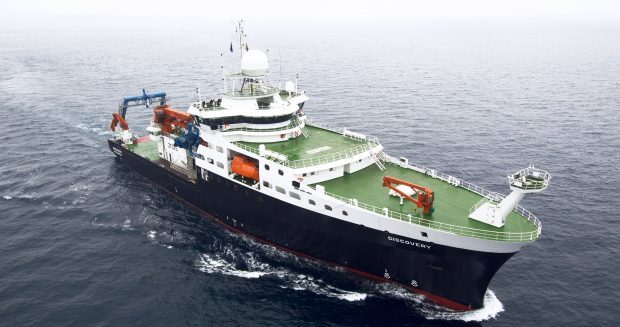A crew of Aberdeen University scientists will set sail to the North Atlantic next week to test pioneering technology to help establish how deep sea ecosystems respond to major oil spills.
The researchers will be testing out a new machine, memorably dubbed the Multi-Autoclave-Coring and Experimentation Unit (MAC-EXP), which has been developed at the university’s Oceanlab facility in Newburgh and funded through a £500,000 grant from the National Environmental Research Council.
The enormous device, once lowered deep into the Atlantic depths, will enable the scientists to test the ability of animals, plant life, plankton and other organisms to deal with the toxic aftermath of an oil spill.
By taking sediment from the ocean floor and keeping the sample under the same intense pressures experienced in deep water environments while carrying out experiments, the scientists will be able to accurately determine the effects oil pollution has on deep-sea life.
The team will take the research vessel RRS Discovery on its journey to the North Atlantic on May 13.
Professor Ursula Witte, who is leading the research, said the MAC-EXP could help drillers safeguard against environmental disasters such as the largest ever oil spill in US waters.
She said: “The Deepwater Horizon spill in the Gulf of Mexico was a stark reminder of the risks attached to human activity in largely unknown extreme environments, and it was estimated that up to 1.1 million barrels of leaked oil may have accumulated in the sediment, contaminating a massive area of the sea floor.
“With oil and gas exploration taking place in deeper waters there is an urgent need to improve our understanding of deep-sea ecosystems to assess the potential impact and implications of these activities to ensure the adequate management of deep-sea biodiversity and natural resources.”
Dr Stewart Chalmers, technical director of Oceanlab, said :”MAC-EXP is a unique system that is designed to enable us to capture accurate data on the ability of organisms to recover from major spills by allowing us to remove sediment from the sea floor and keep it under the same conditions through an uninterrupted pressure chain that allows tests to be carried out at realistic environmental conditions.
“Our hope is that the system will mark a major step forward in our ability to understand the ability of organisms found in deep ocean environments to recover from a major spill.”
